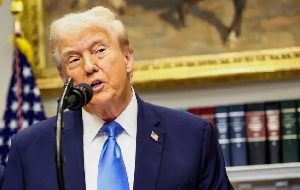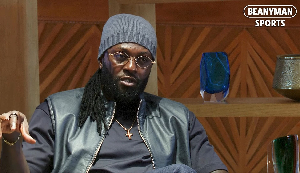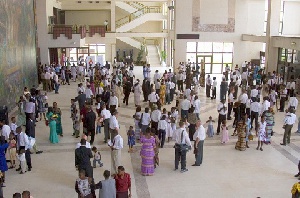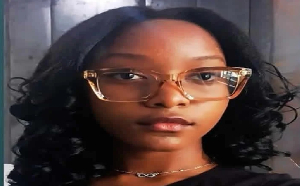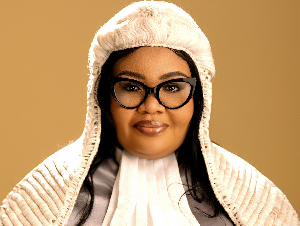Ishmael Mensah Blog of Tuesday, 31 December 2024
Source: Ishmael Mensah
Why had CHASS remained silent about Akufo-Addo's obligation to release SHS for so long?
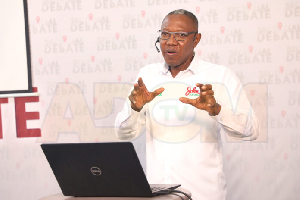
In addition to going viral, the Conference of Heads of Assisted Secondary Schools (CHASS) recently sent a letter titled "Urgent Request for Release of All Outstanding Funds to Schools" to the Minister for Education on December 20, 2024. The letter raised questions that both CHASS and President Akufo-Addo need to address.
CHASS chronicles and bemoans the financial difficulties that our secondary schools face under the free Senior High School (free SHS) Program, although somewhat belatedly. In the event that all outstanding monies are not paid, CHASS advises against the reopening of secondary schools on January 3, 2025.
Many are wondering why CHASS has been silent for so long about Akufo-Addo's reliance on his so-called flagship policy. Many Ghanaians are also wondering why Akufo-Addo has not fulfilled his commitments under his so-called flagship initiative, given that parliament has approved every budget proposal made since 2017 to finance the free SHS scheme.
Up until recently, the free SHS program was hailed as the most significant measure implemented during Akufo-Addo's two-term presidency. In the 2020 campaign and the just concluded 2024 elections, the ruling New Patriotic Party (NPP) made it a key theme.
However, the substantial obstacles that have hindered the agenda have been well demonstrated by post-election developments in the education sector. One term best describes the majority of the issues: debts on all fronts.
The association listed a number of arrears the government owes to its schools in the CHASS letter dated December 20, 2024. It stated that the arrears were caused by ongoing payments to the schools, power bills, transportation funds, and perishable goods.
According to CHASS data, the debts it is presently requesting the government to pay started to accumulate some four years ago.
Recurrent arrears for SHS 1 and SHS 2 students were not paid in the second semester of 2021, according to the data that is currently available. As the debt mounted, financing for second-year students at transition schools was also neglected.
The situation deteriorated the following year when recurring arrears that were supposed to be paid to SHS 1, 2, and 3 students were not paid throughout the first year of the subsequent academic year.
The government covered 50% of the third-year transition schools' ongoing arrears in the second semester of 2022. The remaining arrears were not paid to SHS 1 students enrolled in classes that semester.
There was absolutely no difference in 2023. Without paying the SHS 1 students who were enrolled in classes during the first semester, the government persisted in kicking its debts down the trail.
Recurrent arrears persisted as the year came to an end and the second semester began because education sector managers were unable to settle any of these debts with the transition schools. All second-cycle students at those universities were impacted by this.
In the first semester of the 2023–2024 academic year, the transition day and boarding schools received only the examination fee component; the other obligations were not paid. Since only the examination fee component was paid to all of the schools, the second semester was essentially the same.
Debt to the general public Following the West African Examination Council's (WAEC) odd public statements on payments owed to it, SHS has barely been surprised. According to CHASS data, the administration has settled half of its outstanding balance for the 2022 and 2023 academic years' West African Senior Secondary Examination (WASSCE) practical.
These debts all indicate a trend of financial difficulties that began in the first year of President Akufo-Addo's second term. Despite these obstacles, President Akufo-Addo labeled as naysayers those who legitimately expressed disapproval of the badly executed free SHS policy, even going so far as to accuse them of trying to have the policy overturned.
CHASS remained silent in the face of all of these, only warning in the final hours of the departing administration that schools cannot be reopened until the arrears are paid. After years of Akufo-Addo and his appointees spreading lies about the policy, it would have been in the best interests of the country for CHASS to have voiced these concerns.
The total sum authorized by parliament and allotted for free SHS for the eight-year period from 2017 to 2024 is GHC15.5 billion. Therefore, it seems sense to ask why the Akufo-Addo/Bawumia government owes SHS money, as stated in the CHASS letter.
The only reasonable conclusion to draw, considering the amount of money that parliament has approved over the years to implement the policy, is that Akufo-Addo and his appointees may have embezzled or misappropriated cash for purposes unrelated to free SHS. Therefore, it is reasonable for the new John Dramani Mahama government to demand an investigation into free SHS spending from 2017 to 2024.
Free SHS is unquestionably a good idea, but as CHASS's letter of lamentations demonstrates, the corrupt and inept Akufo-Addo administration handled it badly. Ghanaians' overwhelming support for President-elect John Dramani Mahama to maintain and enhance free SHS is therefore not surprising.


